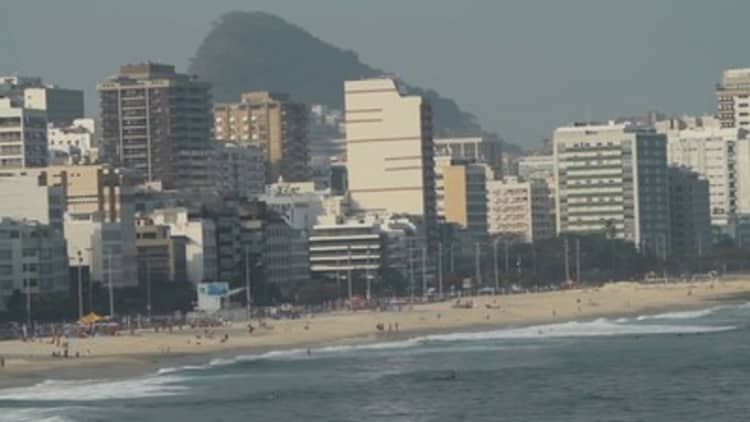
Brazil's economy has fallen further into its worst ever recession, contracting by 3.6 percent in 2016 and pressure is mounting on policymakers to stimulate growth.
The former Latin American powerhouse recorded a steeper-than-expected decline of 0.9 percent gross domestic product (GDP) in the final quarter of last year, intensifying the economic contraction that has imbued Brazil for eight consecutive quarters – the longest period of decline on record for the country.
Brazil's economy is now 8 percent smaller than it was in December 2014.
The two-year slump has hit almost all economic sectors, causing unemployment to rise 12.6 percent, according to the data released Tuesday by IBGE, the agency responsible for recording Brazil's economic figures.
Up to 12.9 million people are now unemployed in Brazil.
Brazil was once one of the world's fastest-growing economies, positioning it as the 'B' in the Brics countries. However, it has long-struggled with corruption and political turmoil, and recent economic mismanagement has seen the country's GDP slip into negative territory following the end of the commodity super cycle of 2011.
Political pressure
The new figures have placed further pressures on President Michel Temer, who stepped into office following the impeachment and removal of his predecessor, Dilma Rousseff, for illegally manipulating government accounts.
Shortly after the GDP figures' release Tuesday, the government announced plans to expand its Investment Partnership Programme (PPI) to encourage private enterprise. It forecasts that the expansion could bring investment worth 45 billion reals ($14.4 billion) and create up to 200,000 jobs.
"We need to do this soon, because what we most want is the fight against unemployment," Temer said yesterday at a meeting of the PPI Council.
Brazil has also been battling with high inflation, peaking at almost 11 percent in early 2016, its highest level in the last decade. However, forecasts released yesterday by the Organisation for Economic Co-operation and Development indicate that inflation fell to 5.4 percent in January, down from 6.3 percent in December.
Looking up
Some analysts are now anticipating a pick-up in the economy, with forecasts suggesting the country will close the years with positive GDP of around 0.5 percent, close to 2014 levels when the economy was buoyed by events including the World Cup.
"In real terms, GDP is now nine percent below its pre-recession peak, said Neil Shearing, Capital Economics' chief emerging markets economist in a note. "This is comfortably the worst recession in recorded history.
"However, we suspect that the fourth quarter should also mark the end of the recession."
Finance Minister Henrique Meirelles told delegates at a meeting of the Economic and Social Development Council (CDES) Tuesday that indicators including supermarket sales, motorcycle production and consumer confidence signalled signs of recovery.





